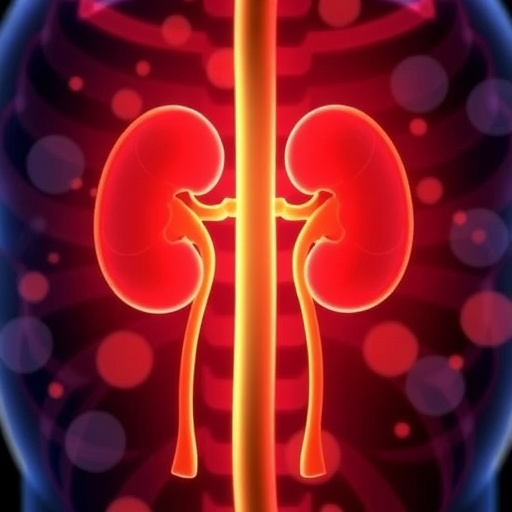The exciting evolution of diabetes management in post-renal transplantation patients is capturing the attention of healthcare professionals and researchers alike. A groundbreaking study titled “Use of Semaglutide in Diabetes Care Post Renal Transplantation,” conducted by Alluhayyan, Almutawa, and Alghamdi, delves deep into the potential benefits of semaglutide, a GLP-1 receptor agonist, in this unique patient population. This article highlights the relationship between diabetes and renal transplant recipients, shedding light on how semaglutide may work to improve not only glycemic control but overall patient quality of life.
Diabetes is a prevalent condition that complicates the management of post-renal transplant patients. The incidence of diabetes after transplantation often escalates due to various factors, including the immunosuppressive medications necessary for transplant survival, combined with pre-existing metabolic problems. Given this concern, finding an effective treatment to stabilize blood sugar levels in these patients is critical. The phenomenon reflects a broader public health challenge where the relationship between kidney function and glucose metabolism has profound implications on patient outcomes.
Semaglutide, an innovative pharmacological agent, has garnered significant attention for its role in managing Type 2 diabetes. As a GLP-1 analogue, it mimics the incretin hormone’s function, leading to enhanced insulin secretion and suppressed glucagon release, both vital in maintaining glucose homeostasis. With proven efficacy in controlling HbA1c levels and promoting weight loss, semaglutide is emerging as a game-changer not just for ordinary diabetes cases, but also for high-risk patients such as those living with the complexities of post-renal transplantation.
The authors meticulously investigated semaglutide’s applicability in their clinical study, emphasizing the distinct physiological and metabolic alterations in renal transplant patients. After kidney transplantation, these individuals often face metabolic syndrome components, including insulin resistance, hypertension, and dyslipidemia, increasing the risk for cardiovascular complications. The role of semaglutide extends well beyond glucose control; it also targets these comorbid conditions, showcasing its multifactorial benefits in improving patient health post-transplant.
Participants in this study were closely monitored through rigorous protocols assessing both glycemic and non-glycemic outcomes. A significant improvement in glycemic control was noted amongst subjects, characterized by reductions in HbA1c levels. Furthermore, positive trends in weight management were observed, as many patients benefitted from semaglutide’s appetite-reducing properties. This finding aligns with other studies showcasing GLP-1 receptor agonists’ unique ability to encourage weight loss, an essential factor given the weight gain observed in transplant recipients due to chronic steroid treatments.
Adverse reactions and safety profiles of medications are pivotal in drug administration, especially in delicate populations. The study reports a satisfactory safety profile for semaglutide, aligning with existing literature surrounding this class of medication. Hypoglycemic events remained rare, further supporting its clinical relevance in this demographic. However, the need for continuous monitoring emphasizes the need for informed clinical practices, where healthcare professionals remain vigilant regarding potential side effects.
Moreover, the psychological impact of managing diabetes after renal transplantation must not be overlooked. The ongoing burden of chronic health issues can exacerbate stress and anxiety among patients. By integrating semaglutide into therapy regimens, patients may experience a dual benefit: improved physical health and reduced psychological burden, thereby fostering a more holistic approach to their overall well-being.
The implications of this study extend beyond immediate clinical applications. Its findings could foster further research avenues exploring additional glucagon-like peptide-1 analogs in renal transplantation. As the medical community seeks more effective strategies to overcome the challenges posed by post-transplant diabetes, semaglutide’s role could represent only the beginning of a new frontier in treatment options.
Additionally, the research promotes the collaboration between nephrologists, endocrinologists, and primary care providers, advocating for a multidisciplinary approach to treat this vulnerable population. Allowing for more comprehensive care might lead to better patient outcomes, integrating various medical expertise and enhancing the overall healthcare experience for transplant recipients.
As healthcare providers gather more data from ongoing studies, we may anticipate a shift in clinical practice guidelines surrounding diabetes management in renal transplant patients. Semaglutide’s adoption could signify a monumental change, warranting interest from pharmaceutical companies to expand research on similar agents. This evolving narrative could lead to enhanced therapies that vastly improve the quality of life for those affected by diabetes post-renal transplantation.
Future research could benefit from exploring long-term outcomes and ongoing drug efficacy, as the emergence of new clinical evidence surrounding semaglutide continues to shape therapeutic strategies. With the increasing incidence of kidney transplants and the parallel rise in post-transplant diabetes, understanding the nuances of therapy adaptation will be crucial for healthcare advancement in endocrinology and nephrology.
In conclusion, the research by Alluhayyan and colleagues represents a significant stride forward in the management of diabetes for renal transplant patients. With its multifaceted benefits, semaglutide could offer a revolutionary step in enhancing the quality of life and health outcomes for individuals navigating both diabetes and the complexities of transplantation. By marrying innovative pharmacotherapy with dedicated patient care, medical professionals have the potential to alter the trajectory of post-transplant diabetes management dramatically.
The door is open for continued exploration in this thriving domain of healthcare, as we stand on the cusp of breakthroughs that promise hope and enhanced well-being for countless patients facing similar challenges.
Subject of Research: The use of Semaglutide in managing diabetes in post-renal transplant patients.
Article Title: Use of Semaglutide in Diabetes Care Post Renal Transplantation.
Article References:
Alluhayyan, O.B., Almutawa, F.M., Alghamdi, Y.I. et al. Use of Semaglutide in Diabetes Care Post Renal Transplantation.
Curr Transpl Rep 12, 9 (2025). https://doi.org/10.1007/s40472-025-00463-x
Image Credits: AI Generated
DOI:
Keywords: Diabetes, Renal Transplantation, Semaglutide, GLP-1 Receptor Agonist, Metabolic Syndrome, Patient Care, Clinical Outcomes, Pharmacotherapy.




